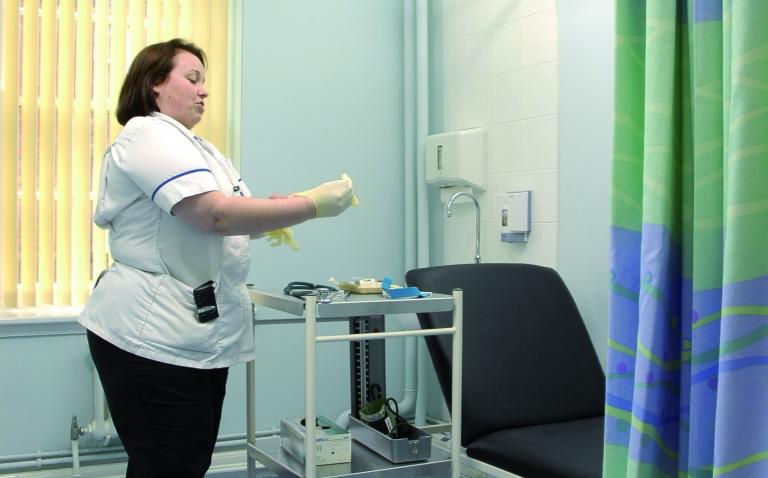Use of antimicrobials containing silver can significantly reduce environmental bacteria levels, initial trial results suggest.
The study is claimed to be the first-ever trial to investigate the effectiveness of such antimicrobials at reducing environmental bacteria levels.
The trial compared two outpatient wards at the Heart of England NHS Foundation Trust, in the UK’s West Midlands.
One ward contained furniture and equipment treated with an antimicrobial protection agent containing silver and one contained untreated items.
Initial results indicated that there were 95.8% less bacteria present in the environment in the ward containing the treated items than in the untreated ward. Items tested included waste bins, blinds, tiles, door handles and light switches.
Furthermore, items in the ward alongside treated products had 43.5% less surface bacteria compared to untreated items not alongside treated products, suggesting that treating some items could help cut bacteria counts on untreated items in the vicinity and reduce overall environmental bacteria levels.
Collaboration between the NHS trust and the agent’s manufacturer, UK firm BioCote Ltd, began in 2006 when Heartlands Hospital equipped an outpatient facility with furniture and equipment treated with the antimicrobial. After 12 months, tests were undertaken to compare treated and untreated items within and between wards.
Both environments were outpatient wards with similar patient throughflows, and according to BioCote testing was carried out at an independent laboratory. The study focused on total viable counts (TVCs) of bacteria on object surfaces, with actual organisms not yet identified.
According to BioCote, silver is a natural antimicrobial with high efficacy against bacteria as well as moulds and fungi. When micro-organisms come into contact with silver their ability to reproduce is inhibited.
The company said indications suggested that using silver-based agents could cut bacterial colonisation, reducing risks of crosscontamination and patient infection with resistant pathogens such as MRSA.
Use of such agents could complement cleaning and hygiene practices, working between cleans to reduce levels of bacteria on treated equipment.










